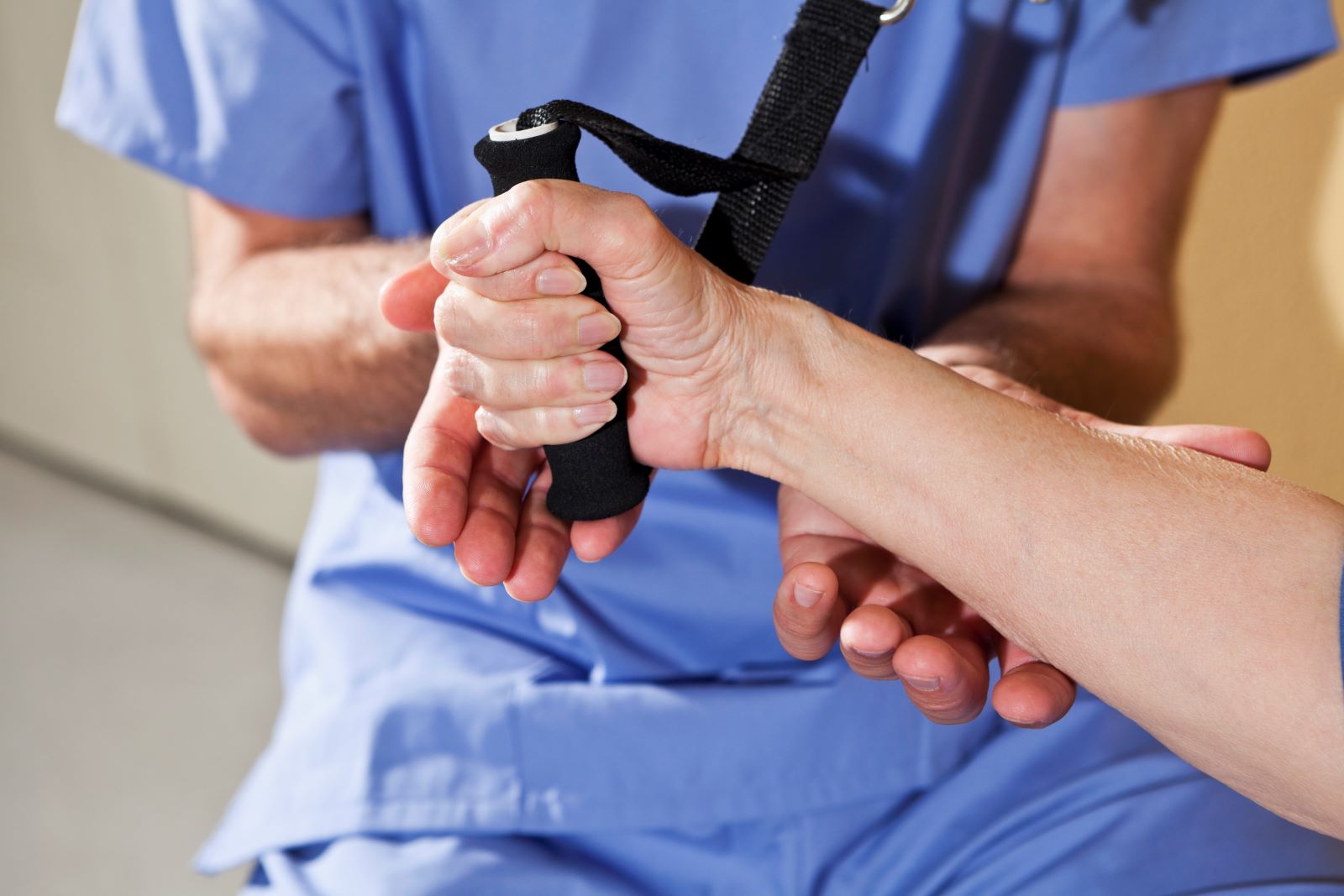Are you quick to ask for help opening a jar or bottle? It might say a lot about your health.
A recent study found that men and women with weakened grip strength showed signs of accelerated aging of their DNA.
Another 2015 study found that hand grip strength predicted risk for early death even better than blood pressure, long considered one of the most reliable indicators of longevity.
So when should you be concerned about your grip strength? And more importantly, what can you do to maintain it? Gwen Rice, MS,OTR/L, an occupational therapist specializing in geriatric and outpatient care in Backus Hospital’s Outpatient Care Center, offers insight into monitoring and maintenance.
> Connect with an occupational therapist
An indicator of general health
According to Rice, hand grip strength is an important indicator of generalized health and daily function.
“Occupational therapists regularly test hand grip strength as a marker for performance,” she adds. “Reduced strength caused by injury, disease (such as arthritis), neurological conditions (such as stroke), overuse syndromes (such as someone who works in a factory, on a farm or as a mechanic) can cause decline in daily task performance.”
Signs your grip strength might be compromised
Examples of reduced grip strength include the inability to:
- Open beverage containers or medication bottles
- Complete household tasks such as cleaning, lifting grocery bags, or laundry
- Perform self-care such as showering, dressing, grooming or oral care
> Want more health news? Text StartHere to 85209 to sign up for text alerts
The repercussions can be bigger than you think.
When you can’t perform daily tasks, there can be more serious repercussions, Rice says.
If you can’t open a beverage, you may not be taking in enough fluids every day, which could lead to dehydration and urinary tract infections. If you can’t open your pill bottles, you might skip doses of medications that are important for your health.
“We take our hands for granted until we are unable to use them normally,” she says. “Decreased hand strength is directly related to increased dependence upon others.”
Three tips for maintaining grip strength
So how can you protect and maintain your grip strength? Rice offers these three tips.
- Avoid overuse. Take breaks from prolonged hand use (i.e. stretching during knitting/crocheting, baking or mechanical tasks). “We are seeing an increased number of young people in occupational therapy for hand pain issues linked to extended gaming and phone use,” Rice notes.
- Avoid extreme temperatures. Wear gloves and avoid extremely hot water for dishwashing.
- Stretch and massage your hands. Stop extended tasks to flex and extend the fingers to avoid prolonged hand positions.
When to see a doctor
If you are having pain in your hands, ask your primary care provider for a referral to occupational therapy sooner rather than later, Rice counsels.
“Occupational therapy can provide calming, pain reducing modalities and teach work simplification techniques to avoid chronic hand issues.”


